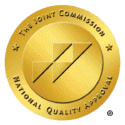Why is Detox Important?
For many people, recovery from addiction starts with detoxification. This program isn’t a requirement for everyone – but in certain circumstances, it can be essential. Why is detox important? What happens in a detox program? And how can you know if you need detox? To discover the answers to these and a few other important questions about detox, keep reading!
What is Drug Detoxification?
Drug detoxification is the process of removing addictive substances from the body.
When a person uses alcohol or any other drugs, their body naturally eliminates these substances. Various organs break the substances down, and then the remnants are removed through sweat, urine, and even breath. If the person uses the substance again, this process begins anew.
When a person is becomes addicted to a drug, their body adapts to the presence of the substance. It will continue to process and eliminate the substance, but it will expect more to be ingested. If the person doesn’t use the drug again within a certain time frame, their body may react with a variety of painful symptoms. This is known as drug withdrawal.
Why is Detox Important?
It is no exaggeration to state that drug withdrawal can be an extremely unpleasant experience. In some severe cases, withdrawal can even be life-threatening.
Why is detox important? Because when a person enters a detox program, they can receive professional services to protect their health and keep them as comfortable as possible.
If a person tries to get through withdrawal on their own, they might quickly become overwhelmed. Depending on which drug they have become addicted to, they might develop uncomfortable symptoms.
Physical Drug Withdrawal Symptoms
- Intense cravings for the drug
- Headaches
- Extreme abdominal pain
- Muscle cramps
- Racing heart rate
- Nausea, vomiting, and diarrhea
- Fever and chills
- Tics and tremors
Psychological Drug Withdrawal Symptoms
- Anxiety
- Depression
- Hallucinations
- Paranoia
- Delusion
People who experience symptoms like these may be in grave danger. The cravings and other physical symptoms can force them back into active substance abuse. The altered perception and other forms of psychological distress can cause them to either intentionally or inadvertently harm themselves.
In a detox program, a person will not have access to the substance they have been abusing. This eliminates one threat. They will also be under round-the-clock supervision. This can prevent them from taking any potentially harmful actions.
People who participate in detox may receive medication to ease some withdrawal symptoms. They can also participate in therapy to learn how to manage any distress they feel. This is a significant step, as it can mark the moment when a person begins to regain control of their thoughts and emotions. As they continue in treatment, the individual can build on this success.
Continuing in treatment is another reason why detox is important. As a person’s withdrawal symptoms begin to subside, they will start to regain strength and stability. But if they don’t receive follow-on care, they are highly unlikely to remain drug-free.

Benefits of Attending a Medical Detox
Detox programs help people with the physical effects of addiction. But detox alone cannot prepare a person to overcome the psychological and social challenges they will encounter. When a person transitions from detox to an inpatient rehab or an outpatient program, they can start to build the skills that will support their continued recovery.
The post-detox phases of drug addiction treatment can offer the following benefits:
- Gaining valuable insights into the disease of addiction
- Learning to identify and avoid triggers
- Receiving care for co-occurring mental health concerns
- Providing additional time for the person’s body and mind to continue healing
- Introducing structure and a sense of purpose into the individual’s day
- Offering opportunities to share support with others who are working on their recovery
- Practicing relapse-prevention strategies and stress-management skills
- Setting realistic short- and long-term goals
- Connecting with community-based services
Why is detox important? Because it demonstrates to people that they are capable of more than they may once have thought, and it puts them on the path toward improved health and long-term recovery.
What to Look for in a Detox Facility
When you are looking for any type of addiction treatment, it is important to understand both your needs and your options. When you know what types of care are best for you, and you are aware of the scope of services that are available to you, you can choose the most appropriate provider. This approach applies to finding the best detox program, too.
When you are evaluating detox centers, here are some good questions to ask:
- Who provides care in your detox program? What qualifications and experience do they have?
- Is medication-assisted treatment (MAT) an option at your center?
- Will I be able to participate in therapy while I’m in detox?
- If so, what types of therapy do you offer in your detox program?
- What happens if I have a health problem while I’m in detox?
- Does your center offer other levels of care in addition to detox?
- Once I’ve completed detox, how will you determine what follow-on services are right for me?
All reputable detox facilities will be happy to answer these and any other questions you have. If a center gives vague or misleading answers, or refuses to answer your questions at all, you should consider that to be a huge red flag.
Begin Drug Detox at Sanctuary Treatment Center
Sanctuary Treatment Provider offers quality drug detox services in a safe and supportive environment. Our experts can help you complete the detox process safely and with minimal discomfort. Once you’ve finished this program, you can transfer directly into inpatient or outpatient treatment. When you’re ready to get started, the Sanctuary team is here for you. Contact us today to learn more.










